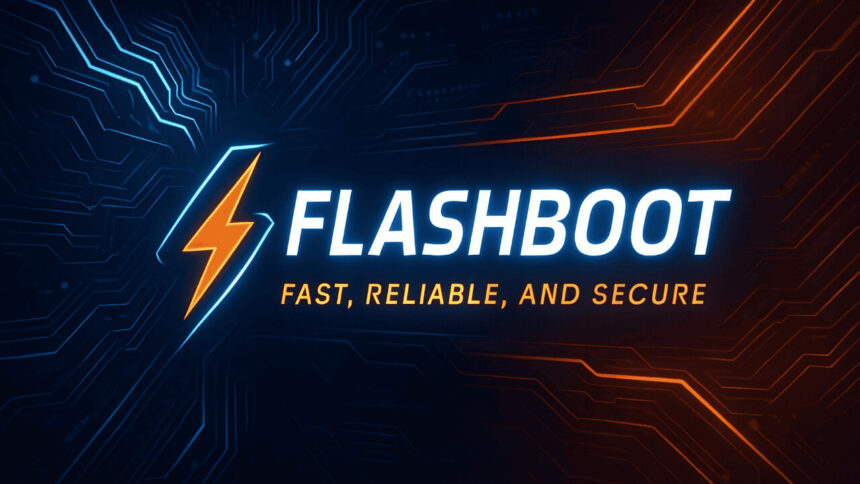1. Introduction
In today’s digital world, bootable USB drives have become a necessity for IT professionals, students, and even casual computer users. They are useful for installing new operating systems, creating portable work environments, or recovering data when a computer fails to boot. One well-known tool in this space is FlashBoot 3.3n, which allows users to clone a full Windows installation onto a USB drive, integrate drivers, and even make portable Windows-to-Go systems.
However, not everyone wants to use FlashBoot alone. Some people look for software like FlashBoot-3.3n-setup because they prefer free or open-source tools, want multiboot features, or need something simpler to use. In this guide, we will explain FlashBoot’s strengths and then explore its best alternatives in detail.
2. What Makes FlashBoot 3.3n Unique?
Before comparing alternatives, it’s important to understand what FlashBoot 3.3n offers. This helps us see why people search for “software like FlashBoot-3.3n-setup” in the first place.
FlashBoot isn’t just a basic ISO-to-USB tool. Instead, it has several advanced features that stand out:
- OS Cloning and Portability – With FlashBoot, you can copy an entire Windows system, including apps and personal data, to a USB drive. This makes it possible to carry your PC environment anywhere.
- Driver and UEFI Support – FlashBoot adds missing drivers such as USB 3.x, NVMe, and even UEFI patches for Windows 7. It also includes VGA emulation patches for older hardware.
- Multiple Source Options – Whether your Windows installation comes from ISO, DVD, or compressed ESD files, FlashBoot can handle them.
- File System Flexibility – Unlike some tools, FlashBoot can format large USB drives with FAT32, making them UEFI-compatible.
- Broad OS Compatibility – It supports Windows versions from Windows 7 up to Windows 11, including bypass options for Secure Boot and TPM restrictions.
In short, FlashBoot is designed for advanced users who need more than just a bootable USB installer. But since it is paid software with a limited free edition, many people look for alternatives.
3. Why Search for Alternatives?
Even though FlashBoot is powerful, there are reasons people explore other tools:
- Cost: FlashBoot requires a license for many of its premium features, while alternatives like Rufus or Ventoy are free.
- Specific Needs: Some users don’t need cloning features, but they want simple ISO flashing or multiboot capabilities.
- Cross-Platform Compatibility: FlashBoot works only on Windows, while tools like balenaEtcher and Ventoy also run on Linux and macOS.
- Simplicity: Beginners may find FlashBoot overwhelming, while other tools focus on user-friendly designs.
That’s why it makes sense to compare different options of software like FlashBoot-3.3n-setup.
4. Best Software Like FlashBoot-3.3n-Setup
Let’s explore the leading alternatives, how they work, and where they shine.
Rufus
Rufus is probably the most popular free alternative. It is lightweight, fast, and perfect for creating bootable USB drives from ISO files. Rufus also supports Windows To Go, which makes it closer to FlashBoot in terms of portable Windows creation.
- Pros: Very fast, supports both BIOS and UEFI, portable (no installation needed).
- Cons: Only runs on Windows; lacks full cloning features.
Ventoy
Ventoy has become extremely popular because it allows users to copy multiple ISO files to one USB drive. Instead of formatting every time, you just drag and drop ISOs and boot from them using a simple menu.
- Pros: Multiboot support, works on Windows and Linux, supports large ISO files over 4GB.
- Cons: Does not provide OS cloning like FlashBoot.
balenaEtcher
balenaEtcher is known for its simple, clean design. It’s cross-platform, running on Windows, Linux, and macOS, and it is perfect for flashing images to USB drives or SD cards.
- Pros: Beginner-friendly, modern interface, cross-platform.
- Cons: Limited to basic flashing; lacks advanced features like cloning or multiboot.
UNetbootin
UNetbootin has been around for years and is mainly used for creating bootable Linux USB drives. It supports many Linux distributions directly.
- Pros: Cross-platform, wide Linux support.
- Cons: Less polished, limited Windows support.
YUMI and Universal USB Installer (UUI)
Both YUMI and UUI are focused on creating multiboot drives. YUMI allows you to add multiple operating systems, antivirus tools, and utilities to one USB stick.
- Pros: Supports multiboot, good for IT technicians.
- Cons: Windows-only, interface looks outdated.
5. Comparison Table
Here’s a quick comparison of FlashBoot and its alternatives:
| Software | OS Cloning | Multiboot | Cross-Platform | Windows 11 Support | Best Use Case |
|---|---|---|---|---|---|
| FlashBoot 3.3n | Yes | Limited | Windows only | Yes | Full OS cloning and portability |
| Rufus | No | No | Windows only | Yes | Fast ISO flashing, Windows To Go |
| Ventoy | No | Yes | Windows/Linux | Yes | Multiboot USB with many ISOs |
| balenaEtcher | No | No | Cross-platform | Yes | Simple flashing for beginners |
| UNetbootin | No | No | Cross-platform | Partial | Linux live USBs |
| YUMI / Universal Installer | No | Yes | Windows only | Partial | Multiboot for IT and recovery tools |
6. Which Tool Should You Choose?
The best software like FlashBoot-3.3n-setup depends on your needs:
- If you want to clone a full Windows OS and carry it everywhere → FlashBoot is still the leader.
- If you just need a fast, simple way to make a Windows USB installer → Rufus is the best choice.
- If you love flexibility with many ISOs in one USB → Ventoy is unbeatable.
- If you’re a beginner who values simplicity → balenaEtcher is the safest option.
- If you work mostly with Linux distributions → UNetbootin or UUI/YUMI are better suited.
7. Best Practices for Bootable USB Tools
To make the most of these tools:
- Always back up important files before formatting a USB drive.
- For UEFI systems, choose FAT32 formatting for better compatibility.
- Use Ventoy or YUMI if you manage multiple operating systems regularly.
- Update your chosen software frequently to ensure support for Windows 11 and the latest Linux distros.
- Test your bootable USB on different hardware before relying on it in critical situations.
8. Conclusion
FlashBoot 3.3n remains a powerful solution for those who need advanced cloning and driver integration. But if your needs are simpler—or if you prefer free and open-source tools—you have many excellent alternatives to explore.
Whether you go with Rufus for speed, Ventoy for multiboot flexibility, or balenaEtcher for simplicity, there is always software like FlashBoot-3.3n-setup that can match your needs. The right choice depends on whether you value portability, cost, cross-platform support, or user-friendliness.
Other Articles
Hafsa Golewale: A Journey of Academic Excellence and Community Impact
Understanding the “TNHRF TOPMHOEABP Text Message”: Meaning, Origins & Digital Impact
Emma Corrica Heath Ledger: A Legacy of Inspiration and Artistic Influence
Trurimesu: The Reinvented Dessert & Mindful Lifestyle Movement Taking the World by Storm






